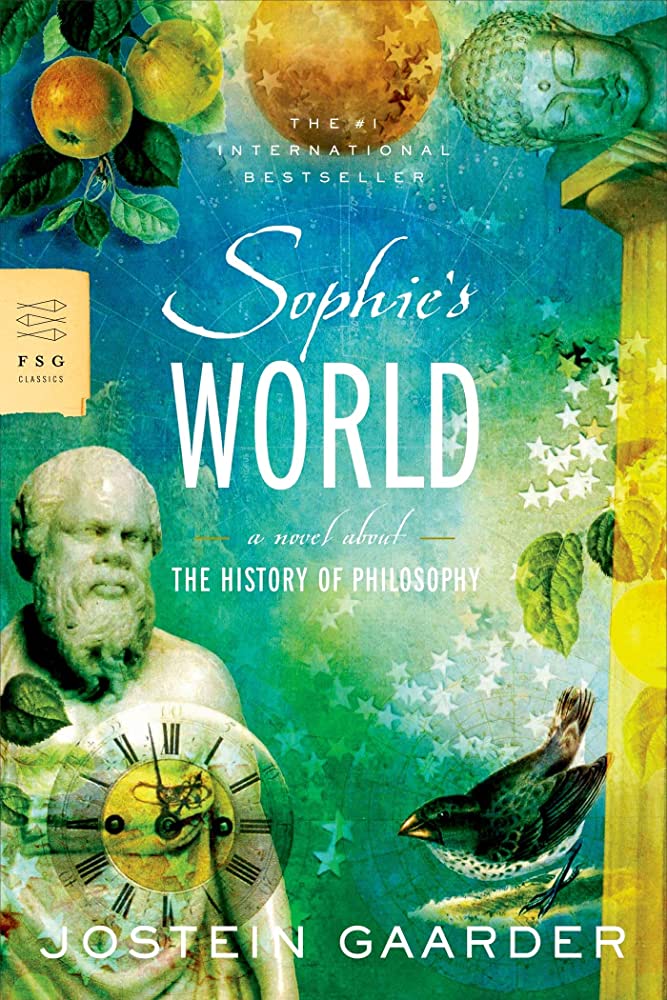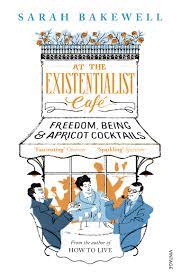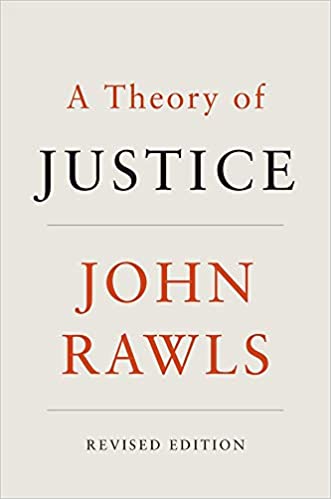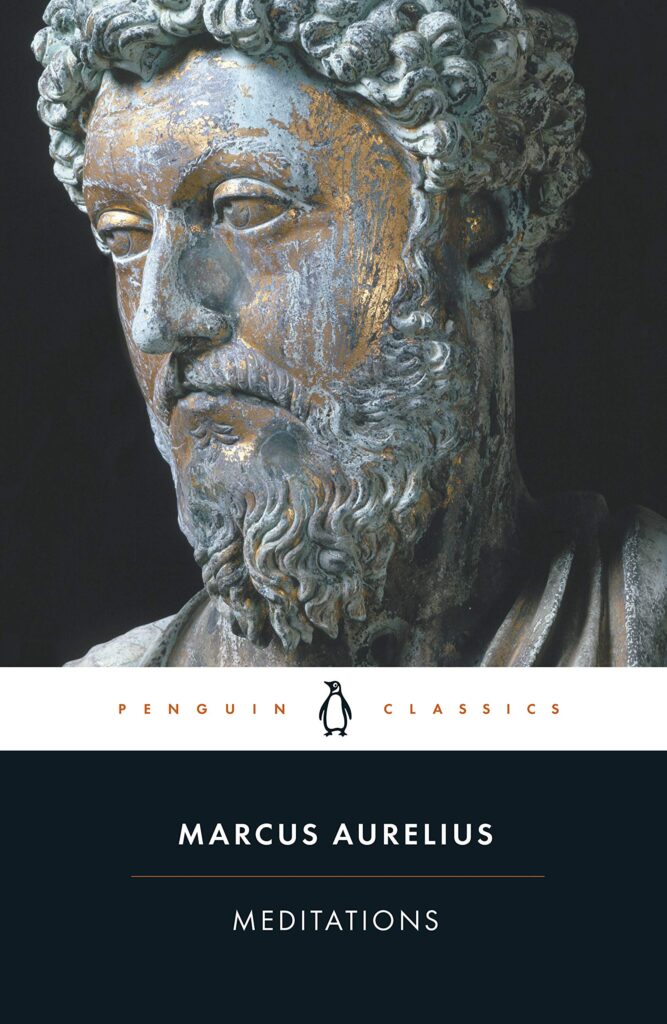7 Best Philosophy Books For Beginners (Ultimate List)
Last Updated on May 19, 2023 by Karl
Are you new to the fascinating world of philosophy? Are you seeking guidance on where to start your philosophical journey? Look no further! In this blog post, I, too, understand the excitement and uncertainty that comes with venturing into the realm of philosophy. As a fellow seeker of wisdom, I once found myself in your shoes, searching for guidance and direction. Fortunately, I had the support of great friends and mentors who played a pivotal role in helping me embark on this life-changing journey.
Now, it is my privilege to extend that support to you. In this carefully curated list, I present the Ultimate List of the 7 Best Philosophy Books for Beginners, drawing from my experiences and the valuable insights from those who guided me. Philosophy, with its profound questions about existence, knowledge, ethics, and more, offers a transformative intellectual adventure that challenges us to think critically and explore the depths of human thought.
Throughout this post, I will delve into each recommended book, offering a brief summary, key takeaways, memorable quotes, and personal reflections. My aim is to guide you on your philosophical journey, just as I was guided by others who shared their knowledge and passion with me. So, let’s embark on this intellectual exploration together and discover the Ultimate 7 Best Philosophy Books for Beginners that will inspire and empower you on your own path of philosophical discovery!
What Are The Best Philosophy Books for Beginners?
1. “Sophie’s World” – Jostein Gaarder.
Best For Introducing The History Of Philosophy in a Captivating Narrative:

“Sophie’s World” is a remarkable philosophical novel that takes readers on an extraordinary journey through the history of philosophy. The story revolves around Sophie, a young girl who receives mysterious letters that introduce her to the world of philosophy. As Sophie embarks on her intellectual quest, guided by her enigmatic mentor, Alberto Knox, readers are taken on a captivating exploration of philosophical ideas spanning from ancient Greece to the modern era. Gaarder skillfully weaves philosophical concepts into an engaging narrative, making complex ideas accessible and enjoyable for readers of all backgrounds.
Key Takeaways:
Memorable Quote:
“A philosopher knows that in reality he knows very little. That is why he constantly strives to achieve true insight. Socrates was one of these rare people. He knew that he knew nothing about life and the world. And now comes the important part: it troubled him that he knew so little.”
Jostein Gaarder
This quote highlights the Socratic principle of wisdom being rooted in awareness of our own ignorance, emphasizing the humility and perpetual quest for knowledge that philosophy encourages.
Personal Reflection:
Sophie’s World holds a special place in my heart as it was one of the first philosophy books that sparked my intellectual curiosity. Gaarder’s unique approach to blending fiction with philosophy makes this book an excellent choice for beginners. The narrative unfolds in a way that keeps readers engaged while providing a solid foundation in the history of philosophical ideas.
As I followed Sophie’s journey, I found myself pondering profound questions about life, existence, and the nature of reality. The book’s ability to present complex concepts in an accessible manner allowed me to explore different philosophical perspectives and gain a deeper understanding of the human quest for knowledge.
Sophie’s World not only introduced me to influential philosophers and their ideas but also encouraged me to question and examine my own beliefs and assumptions. It ignited a lifelong passion for philosophy and set me on a path of intellectual exploration. I wholeheartedly recommend this book to beginners who are seeking an enjoyable and enlightening introduction to the world of philosophy.
Get “Sophie’s World” on
2. “The Philosophy Book” – Dorling Kindersley.
Best For Visual Learners And Quick Reference to Philosophical Concepts.

“The Philosophy Book” by Dorling Kindersley is an excellent resource for beginners seeking a visually engaging introduction to philosophy. This beautifully illustrated book presents a comprehensive overview of philosophical ideas and concepts in a concise and accessible format. Each key philosopher and their theories are presented through visually appealing infographics, timelines, and concise explanations. Whether you’re interested in ethics, metaphysics, or epistemology, this book provides a broad survey of philosophical topics, making it a valuable reference for exploring the diverse world of philosophy.
Key Takeaways:
Memorable Quote:
“The unexamined life is not worth living.”
Socrates
This famous quote by Socrates encapsulates the core philosophy of self-reflection and the pursuit of knowledge, highlighting the importance of critically examining one’s beliefs and actions.
Personal Reflection:
The Philosophy Book by DK holds a special place in my collection of philosophical resources. Its visually appealing presentation and concise explanations make it an ideal companion for both beginners and those seeking a quick reference guide to philosophical concepts. The book’s unique approach of combining text with captivating illustrations and infographics brings philosophy to life in a visually stimulating way.
As a visual learner, I found the book’s layout and design to be immensely helpful in grasping complex ideas. The concise summaries of each philosopher’s key theories provided me with a solid understanding of their contributions to philosophy. It allowed me to explore different branches of philosophy at my own pace and delve into specific topics that piqued my interest.
The Philosophy Book serves as a valuable resource for quick refreshers on philosophical concepts or for sparking further exploration into specific philosophers or areas of interest. Its accessibility and comprehensive coverage make it an essential addition to any beginner’s philosophy library.
Get “The Philosophy Book” on
3. “At the Existentialist Café” – Sarah Bakewell.
Best For Exploring Existentialist Philosophy Through Engaging Narratives.

“At the Existentialist Café” by Sarah Bakewell takes readers on a captivating journey into the world of existentialist philosophy. Bakewell skillfully interweaves biography, philosophy, and historical context to provide a compelling exploration of existentialist thinkers such as Jean-Paul Sartre, Simone de Beauvoir, and Albert Camus. The book invites readers to join the intellectual and social milieu of these philosophers, delving into their ideas and the impact they had on philosophy and society. Through engaging narratives and thought-provoking analysis, At the Existentialist Café offers a rich and accessible introduction to existentialist philosophy and its relevance to our lives.
Key Takeaways:
Memorable Quote:
“Existentialism isn’t so much a philosophy as a label for several widely different revolts against traditional philosophy.”
Sarah Bakewell
This quote by Bakewell captures the diverse and multifaceted nature of existentialism, highlighting how it encompasses a range of philosophical perspectives that share a common rebellion against traditional philosophical frameworks.
Personal Reflection:
The Existentialist Café left a profound impact on me as I delved into the world of existentialist philosophy. Bakewell’s engaging storytelling and meticulous research transported me into the lives and ideas of influential existentialist thinkers. I was captivated by the vivid descriptions of intellectual discussions and how these philosophers grappled with questions of existence, freedom, and the human condition.
The book introduced me to the core tenets of existentialism and shed light on the historical and social contexts that shaped the movement. It allowed me to better understand how existentialist thought emerged as a response to the turbulence of the 20th century and the profound changes happening in society.
Moreover, At the Existentialist Café sparked personal reflection and prompted me to question my own beliefs and choices. It challenged me to embrace the idea of personal responsibility and the importance of creating meaning in a seemingly chaotic world. This book invites readers to embark on their own existential journey of self-discovery and introspection.
Get “At the Existentialist Café” on
4. “A Theory of Justice” – John Rawls.
Best For Understanding The Principles Of Justice And Social Equality.
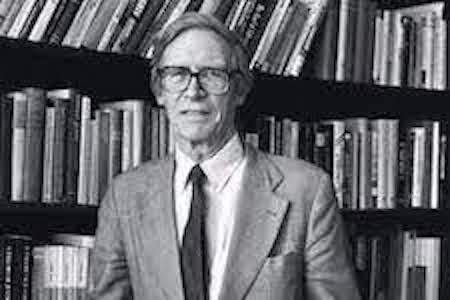
“A Theory of Justice” by John Rawls is a seminal work in political philosophy that examines the concept of justice and proposes a theory that emphasizes fairness and social equality. Rawls presents his influential concept of “justice as fairness,” which centers on the idea that principles of justice should be based on a hypothetical social contract made behind a “veil of ignorance.” This thought experiment challenges readers to envision a just society from a position of impartiality, without knowledge of their own social position or advantages. Rawls’ theory explores the distribution of social and economic resources, political rights, and opportunities to ensure a just and equitable society for all.
Key Takeaways:
Memorable Quote:
“Each person possesses an inviolability founded on justice that even the welfare of society as a whole cannot override.”
John Rawls
This quote encapsulates Rawls’ belief in the inherent worth and dignity of every individual, emphasizing the importance of justice as a safeguard against the potential infringement of individual rights and liberties in the pursuit of collective welfare.
Personal Reflection:
A Theory of Justice by John Rawls is a thought-provoking exploration of justice and equality that challenged my perspectives on societal fairness. Rawls’ concept of justice as fairness, particularly the idea of the veil of ignorance, encouraged me to critically examine my own biases and privileges. It prompted me to envision a just society based on equal opportunities, where social and economic inequalities are addressed to uplift the least advantaged members of society.
Reading Rawls’ arguments and principles of justice broadened my understanding of the complexities surrounding the distribution of resources and the pursuit of social equality. It made me question the prevailing utilitarian approach and consider alternative perspectives that prioritize individual rights and liberties while aiming to create a more equitable society.
“A Theory of Justice” invites readers to engage in deep reflection on the foundations of justice and its implications for our social and political systems. It is a book that not only provides a theoretical framework but also inspires conversations and actions aimed at creating a more just and inclusive world.
Further Recommendation:
If you find yourself struggling to grasp the philosophical concepts presented in these books, don’t worry. Philosophy can be challenging, and it’s normal to feel overwhelmed at times. To help you navigate through the depths of philosophical ideas, I have created another blog post dedicated to providing guidance on how to read philosophy books effectively. In that post, you’ll find practical tips and strategies to enhance your understanding, engage with complex concepts, and make the most of your philosophical reading journey. So, if you ever feel like you need some extra support in comprehending these profound works, be sure to check out my companion article for valuable insights and advice.
Get “A Theory of Justice” on
5. “Meditations” – Marcus Aurelius.
Best For Practicing Stoic Philosophy And Reflecting On Life’s Challenges.
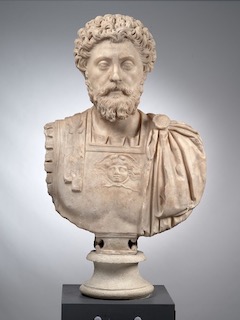
“Meditations” by Marcus Aurelius is a timeless classic of Stoic philosophy that offers readers profound insights into life, virtue, and personal reflection. Written as a series of personal reflections and observations, the book provides a glimpse into the mind of Marcus Aurelius, a Roman emperor, and philosopher. “Meditations” encourages readers to cultivate inner tranquility, embrace the impermanence of life, and focus on living in accordance with virtue. Aurelius’ writings explore topics such as self-discipline, self-improvement, and the acceptance of the inevitable, providing readers with practical guidance for navigating the challenges of life.
Key Takeaways:
Memorable Quote:
“You have power over your mind, not outside events. Realize this, and you will find strength.”
Marcus Aurelius
This quote reminds readers of their ability to control their own thoughts and responses, emphasizing the importance of finding inner strength and resilience in the face of external circumstances.
Personal Reflection:
“Meditations” by Marcus Aurelius has profoundly impacted my philosophical journey. The timeless wisdom and practical guidance offered in Aurelius’ writings resonate as strongly today as they did centuries ago. As I delved into Meditations, I discovered solace in the Stoic principles of self-control and acceptance, particularly during moments of difficulty and uncertainty.
Aurelius’ emphasis on inner reflection and the power of the mind deeply resonated with me. Consequently, the book motivated me to establish a daily practice of self-examination. Through this practice, I reflect on my thoughts, actions, and values, striving to align them with the virtues of wisdom, courage, and justice.
Moreover, it incessantly reminds me to embrace the present moment and draw strength from life’s challenges. Aurelius’ teachings have aided me in cultivating resilience and navigating adversity with a sense of calm and purpose.
Through reading and reflecting on Meditations, my perspective on life has undergone a transformative shift. It has guided me toward adopting a more mindful and stoic approach to life’s trials. I frequently return to this profound work, unearthing fresh insights and inspiration with each reading. Therefore, I wholeheartedly recommend Meditations to those seeking guidance on leading a virtuous and fulfilling life.
Further Recommendation:
If you’re interested in Stoic philosophy, then Ryan Holiday’s blog ‘The Daily Stoic‘ is a must-read. As an author and thinker who has popularized Stoicism in the modern era, Ryan offers a wealth of insights and practical advice on how to apply the wisdom of the ancient Stoics to our daily lives. His blog features daily meditations, in-depth articles, and resources for those looking to deepen their understanding of Stoicism. In addition to his blog, Ryan also has a YouTube channel where he discusses Stoic philosophy, offers writing advice, and shares insights from his personal life.
Get “Meditations” on
6. “The Problems of Philosophy” – Bertrand Russell.
Best For Exploring Fundamental Questions And Concepts In Philosophy.

“The Problems of Philosophy” by Bertrand Russell is an exceptional resource for beginners, as it provides a comprehensive exploration of the fundamental questions and concepts in philosophy. To begin with, Russell’s writing style is remarkably clear and concise, making complex philosophical ideas easily understandable. Furthermore, the book covers a wide range of topics, including the nature of reality, the existence of God, the limits of knowledge, and the mind-body problem. Through logical analysis and compelling arguments, Russell invites readers to actively engage with these profound philosophical problems and develop their critical thinking skills.
Key Takeaways:
Memorable Quote:
“Philosophy is to be studied, not for the sake of any definite answers to its questions since no definite answers can, as a rule, be known to be true, but rather for the sake of the questions themselves.”
Bertrand Russell
This quote encapsulates Russell’s view on the value of philosophy. He emphasizes that the true worth of philosophical inquiry lies in the exploration of thought-provoking questions rather than seeking definitive answers, as many philosophical questions do not have straightforward solutions.
Personal Reflection:
Undoubtedly, “The Problems of Philosophy” by Bertrand Russell has been an interesting journey into the profound questions that have fascinated humanity throughout history. Russell’s ability to present intricate philosophical concepts in a clear and accessible manner has been instrumental in deepening my understanding. Through his logical approach and thought-provoking arguments, I have developed a greater appreciation for critical thinking and rigorous analysis when engaging with philosophical inquiries.
Furthermore, this book has reignited my passion for philosophical exploration. The Problems of Philosophy has stimulated my intellectual curiosity, inspiring me to delve deeper into the nature of reality, knowledge, and existence. The emphasis on logical reasoning and careful examination of concepts has provided me with invaluable tools to approach philosophical ideas more effectively.
In conclusion, I really recommend “The Problems of Philosophy” to beginners who seek a comprehensive introduction to philosophical concepts. Russell’s ability to present complex ideas in an accessible manner, coupled with his thought-provoking insights, makes this book an essential resource for those embarking on their philosophical journey.
Get “Critique of Pure Reason” on
7. “What Does it All Mean” – Thomas Nagel.
Best For Exploring Fundamental Philosophical Questions In A Concise And Accessible Manner
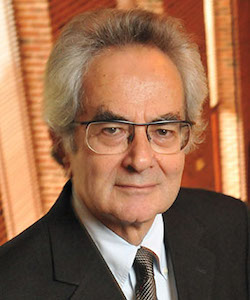
“What Does it All Mean” by Thomas Nagel serves as an excellent starting point for beginners in philosophy, providing a concise and accessible exploration of fundamental philosophical questions. Nagel tackles a wide range of topics, including ethics, consciousness, free will, and the meaning of life, with clarity and depth. Throughout the book, Nagel encourages readers to critically examine these profound philosophical issues and to contemplate their own perspectives on life’s fundamental questions. With its engaging style and thought-provoking content, What Does it All Mean offers a compelling introduction to philosophical inquiry.
Key Takeaways:
Memorable Quote:
“Absurdity is one of the most human things about us: a manifestation of our most advanced and interesting characteristics.”
Seneca
This quote highlights Nagel’s perspective on the nature of absurdity in human existence. He suggests that the recognition of absurdity is a distinctly human trait, arising from our capacity for complex thought and self-awareness. It underscores the inherent tension and paradoxes that can be found in the human experience.
Personal Reflection:
Reading “What Does it All Mean” by Thomas Nagel has been a thought-provoking and intellectually stimulating experience. Nagel’s ability to present complex philosophical concepts clearly and concisely has made the book accessible and engaging for readers new to philosophy, like myself. Through his exploration of fundamental questions, I have gained a deeper appreciation for the complexities of human existence and the diverse perspectives that shape our understanding of the world.
One key takeaway from this book is the importance of critical thinking and self-reflection in philosophical inquiry. Nagel’s thought-provoking discussions on morality, consciousness, free will, and the meaning of life have prompted me to reevaluate my own beliefs and contemplate the philosophical underpinnings of my worldview. It has encouraged me to approach life’s profound questions with curiosity and an open mind.
In conclusion, I highly recommend “What Does it All Mean” to beginners seeking an engaging and accessible introduction to fundamental philosophical questions. Nagel’s ability to distill complex ideas into digestible insights, coupled with his thought-provoking content, makes this book an invaluable resource for those embarking on their philosophical exploration.
Further Recommendation:
I highly recommend Jessica Majewski’s blog post on “When you Write”. In her insightful article, she not only provides valuable recommendations for beginners but also offers intriguing insights on book selections for experts. Her ideas are stimulating and will undoubtedly enrich the reading experiences of both novices and seasoned philosophers. Be sure to check out her post and share her unique perspectives with your audience.
Get “What Does it All Mean” on
The Transformative Power of Philosophy: Why Start Your Journey Here?
Embarking on a philosophical journey is a transformative endeavor that has the potential to profoundly impact our understanding of the world and ourselves. Philosophy, often considered the mother of all disciplines, delves into fundamental questions about existence, knowledge, morality, and the nature of reality. But why should we start with philosophy? What makes it an essential starting point for intellectual exploration and personal growth? In this section, we will explore the reasons why starting with philosophy can be a catalyst for deepening our understanding, expanding our perspectives, and navigating the complexities of life.
Expanding Horizons and Critical Thinking.
One of the primary reasons to begin with philosophy is its ability to expand our horizons and cultivate critical thinking skills. Philosophy prompts us to question the assumptions and beliefs that shape our worldview, encouraging us to examine our own thought processes and engage in rigorous intellectual inquiry. By engaging with different philosophical theories and arguments, we learn to think critically, analyze complex ideas, and develop coherent reasoning. This foundation in critical thinking becomes a valuable tool that extends beyond the realm of philosophy, equipping us to navigate the complexities of everyday life, make informed decisions, and engage in meaningful conversations.
Exploring Life’s Big Questions.
Philosophy invites us to grapple with life’s big questions that have intrigued humanity for centuries. Questions about the nature of reality, the existence of God, the origins of morality, and the meaning of life are at the core of philosophical inquiry. Starting with philosophy allows us to delve into these profound inquiries, challenge our assumptions, and develop our own perspectives. By engaging with different philosophical theories and arguments, we gain a deeper understanding of ourselves, our values, and our place in the world. Philosophy provides a framework for exploring the human experience and contemplating our existence in a thoughtful and reflective manner.
A Journey of Personal Growth.
Beyond the intellectual benefits, starting with philosophy is a journey of personal growth and self-discovery. Philosophy encourages introspection and self-reflection, prompting us to confront our own beliefs, biases, and assumptions. It pushes us to confront uncomfortable truths, grapple with moral dilemmas, and contemplate the complexities of human existence. This process of self-examination allows us to develop a more nuanced understanding of ourselves and fosters personal growth. Philosophy challenges us to embrace uncertainty, wrestle with ambiguity, and confront the mysteries of life, ultimately leading to a deeper appreciation for the complexity and beauty of the human experience.
In conclusion, starting with philosophy offers a transformative path of intellectual exploration and personal growth. By expanding our horizons, cultivating critical thinking skills, and engaging with life’s fundamental questions, we embark on a journey that challenges our assumptions, broadens our perspectives, and enriches our understanding of the world. Philosophy equips us with the tools to navigate the complexities of life, grapple with profound inquiries, and develop a deeper understanding of ourselves and the world around us. So, whether you’re a beginner or a seasoned thinker, embrace the transformative power of philosophy and embark on a journey that will shape your intellect, broaden your perspectives, and deepen your appreciation for the wonders of existence.
Wrap Up.
In summary, exploring philosophy through the lens of beginner-friendly books can be a transformative experience. We began by acknowledging the personal connection and empathy the author has with readers who are embarking on this journey, having once been beginners themselves. The blog post then introduced seven best philosophy books for beginners in 2023, each with its unique attributes and contributions.
“Sophie’s World”, with its captivating narrative, takes readers on a journey through the history of philosophy. “The Philosophy Book” provides a comprehensive overview of philosophical ideas and concepts in a visually appealing format. “At the Existentialist Café” delves into the lives and ideas of existentialist thinkers, exploring the complexities of human existence. “A Theory of Justice” offers profound insights into political philosophy and principles of justice.
“Meditations”, written by the Roman Emperor Marcus Aurelius, serves as a guide to cultivating inner wisdom and practicing Stoicism. “The Problems of Philosophy” by Bertrand Russell presents an accessible introduction to philosophy’s fundamental questions. Lastly, “What Does it All Mean by Thomas Nagel” prompts readers to ponder profound philosophical inquiries and reflect on the meaning of life.
The post emphasized the importance of starting with philosophy, highlighting its ability to expand horizons, develop critical thinking skills, and encourage self-reflection. Philosophy invites us to explore life’s big questions, challenge our assumptions, and foster personal growth.
In conclusion, by embarking on a journey through these beginner-friendly philosophy books, readers have the opportunity to engage with timeless ideas, broaden their perspectives, and deepen their understanding of themselves and the world. So, embrace the transformative power of philosophy and embark on a journey that will shape your intellect, broaden your perspectives, and ignite a lifelong love for philosophical inquiry.
Further Recommendation:
If you’re hungry for more philosophical wisdom and eager to delve into the all-time greatest philosophy books, I highly recommend checking out my blog post dedicated to that very topic. In that article, I have curated a collection of the most influential and profound works in the history of philosophy. From Plato’s “The Republic” to Nietzsche’s “Thus Spoke Zarathustra” and beyond, these timeless classics have shaped the course of philosophical discourse. So, if you’re ready to continue on this journey, be sure to explore my recommended list of the all-time greatest philosophy books.
Last Updated on May 19, 2023 by Karl
Discloser:
Please note that some of the links below may contain affiliate links, which means that I may receive a commission if you decide to purchase a paid plan. However, this will not cost you anything extra, and I have included this information in our privacy policy. Please note that this site is not intended to provide financial advice and is solely for entertainment purposes.
